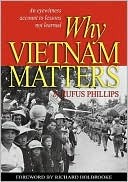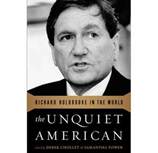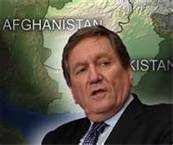The day of President John F. Kennedy’s assassination, November 23, 1963, may be the day America lost her innocence.
True, the nation experienced horrible tragedies before Kennedy’s murder: Lincoln’s assassination, Pearl Harbor, the beginning of the Great Depression. This one, however, involved young children—Caroline and John-John, barely six and three years old. Pictures of innocence.
Before that day, we were on a roll as the unassailable victor of World War II, our nation physically undamaged by the carnage that had devastated Europe, free to lead the industrialized world. The Cold War was at its height, but Kennedy had stood firm during the Cuban missile crisis. The young and personable president was much more popular with the world’s peoples than the aging, dour Kremlin leaders.
Surely, the nation would conquer all. We would win in any encounter with the Soviets. We would buy our homes and enjoy rising middle class prosperity. Our children would go to college, find great jobs. We would enjoy sitcoms and sports events as the television age blossomed.
And then Lee Harvey Oswald killed the President, for what reason we are still not sure. In a bizarre anticlimax, he was killed by Jack Ruby two days later. Ruby died in 1967 of cancer. Speculation has boiled ever since.
Of course, even in Kennedy’s presidency, things weren’t as sanguine as they appeared. The baby boomers, beginning to grow up, would transform every demographic bulge they passed through. Something called “the pill” would challenge moral certainties. And U.S. advisors already were entering the little Asian country of South Vietnam.


 He spent his first diplomatic postings in the 1960’s in that country, taking part in efforts to “win the hearts and minds” of the Vietnamese. He saw those efforts fail, and disillusionment followed as he realized that American power, great as it is, has limits.
He spent his first diplomatic postings in the 1960’s in that country, taking part in efforts to “win the hearts and minds” of the Vietnamese. He saw those efforts fail, and disillusionment followed as he realized that American power, great as it is, has limits.
 Holbrooke died suddenly in the middle of his diplomatic mission in another war, this one in Afghanistan. He saw differences with Vietnam, including the fact that America had been deliberately attacked by enemies with bases in Afghanistan. However, he also detected similarities with the quagmire that became Vietnam: ” . . . the existence of an indefensible border harboring enemy sanctuaries; American reliance on a corrupt partner government; and, most critically, the embrace of a counterinsurgency doctrine, which he had learned through painful experience was an exceedingly difficult military and civilian strategy to execute.” (The Unquiet American, page 95.)
Holbrooke died suddenly in the middle of his diplomatic mission in another war, this one in Afghanistan. He saw differences with Vietnam, including the fact that America had been deliberately attacked by enemies with bases in Afghanistan. However, he also detected similarities with the quagmire that became Vietnam: ” . . . the existence of an indefensible border harboring enemy sanctuaries; American reliance on a corrupt partner government; and, most critically, the embrace of a counterinsurgency doctrine, which he had learned through painful experience was an exceedingly difficult military and civilian strategy to execute.” (The Unquiet American, page 95.)